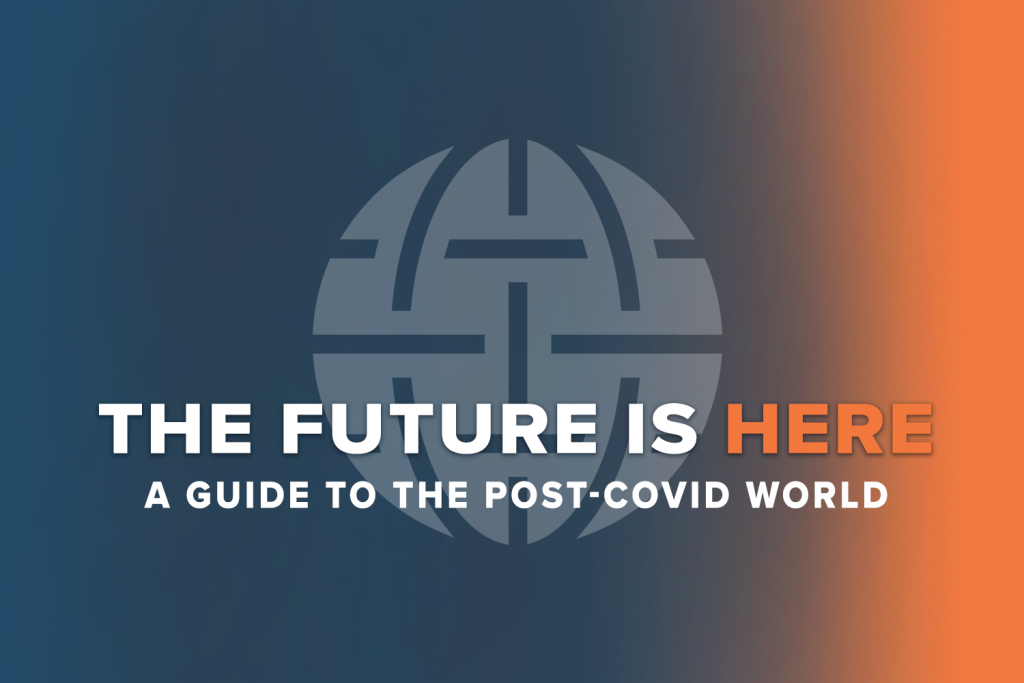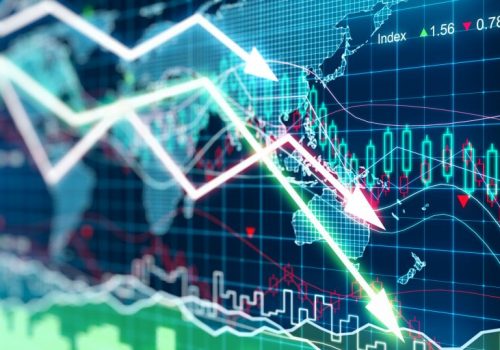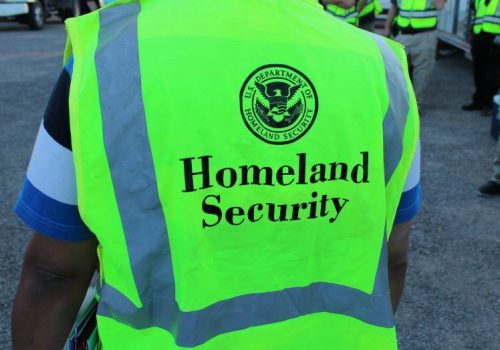The future is here: A guide to the post-COVID world 09/11/2020
Welcome to your new guide to where the world is headed during the pandemic era and beyond. Each week, we’ll bring you the latest and most significant expert insights and international news about how coronavirus is reshaping international affairs. To stay updated each week, sign up to the newsletter here.
Let’s take a spin around the globe, in seven minutes or less.
In top stories this week:
- AstraZeneca has paused trials of a coronavirus vaccine after a participant fell ill.
- The World Health Organization is warning that public-health investment must reflect the reality that this won’t be the last pandemic.
- Opinions are divided over an alarm clock, photographed on a pub table beside a pint, in Ireland.
- But first… we have a special dispatch from Josh Lipsky, director of the Atlantic Council’s GeoEconomics Center. Here’s his take on this week’s big story:
The big story
This week’s key theme: The global economy is headed for a period of fractured growth.
Over the past decade, the global economy moved in synchronized swings. In 2017, measured by gross domestic product (GDP), 80 percent of the world accelerated. In 2019, we saw a mirror image: Nearly eighty percent of the world decelerated. But will the synchronous movement continue in the wake of COVID-19? The verdict is in and the answer is no.
The Chinese economy experienced a rapid bounce back in the second quarter of 2020, while the world’s other major economies suffered a historic contraction. Our new analysis, graphed below, shows just how off the charts 2020 truly is.
A wake-up call for the West
Of course, China emerged more quickly out of lockdown than the other top economies and had the benefit of a head start in the race for growth. But Beijing is showing the world that even as other economies struggle, it has found ways to rejuvenate its manufacturing sector. That’s a wake-up call for the West.
The path of the pandemic will drive the economics, and the economics will put new strains on our supply chains, trade relationships, and alliances. It will challenge long-held assumptions about spending, inflation, and globalization. That is why the Atlantic Council’s GeoEconomics Center is launching a new global economic recovery tracker. Our goal is not only to see what’s happening now, but also to look around the curve.
To those who say the rest of the world will soon catch up to China, we say: Are you sure? Think about what we all knew for certain on January 1, 2020.
There’s a path for China’s sustained economic recovery through Europe and the rest of emerging Asia. That means the US needs to find ways to grow together with allies—and find them fast.
The bottom line: The new reality of global economics is fractured growth. Whether that remains a short-term phenomenon or a long-term shift depends on what countries do next.
– Josh Lipsky, director, Policy and Programs, GeoEconomics Center
Subscribe to The future is here: A guide to the post-COVID world
Sign up for a weekly roundup of top expert insights and international news about how coronavirus is reshaping international affairs.

The big picture
This week’s theme, visualized: The world’s largest economies, diverged
The pandemic has produced an unprecedented global economic crisis. In the second quarter of 2020, top economies collapsed. The one exception? China, which made a remarkable recovery:
The world in brief
Insights from across the planet, in ten bullets or fewer
- In a reality check, AstraZeneca has paused its coronavirus vaccine trial. The company will carry out a safety review after a participant in a UK study had an unexplained illness, The Wall Street Journal reported. Just 6 percent of experimental vaccines are typically successful, but the news from AstraZeneca—a reminder of the risks involved—shouldn’t hold back the development of different potential vaccines, Bloomberg said.
- QUOTE: “Many trials are temporarily stopped to investigate potential safety issues and they are never talked about, but this is clearly a very high-profile study and so every step is being very closely scrutinized,” Bloomberg cited Adam Barker, an analyst at Shore Capital, as writing in a note to clients.
- The world must be better prepared for the next pandemic, says the WHO. Countries need to focus on investing more in public health, Reuters cited World Health Organization (WHO) chief Tedros Adhanom Ghebreyesus as saying. Meanwhile, Chinese President Xi Jinping expressed support for the WHO, countering US criticism of the public-health body, The Associated Press said.
- There are lessons for the US in India’s experience with the Spanish flu. Between 10 million and 20 million people in India lost their lives during the Spanish flu epidemic in 1918, but there were up to 15 percent fewer fatalities in districts led by Indian officials rather than British officers, Quartz said, citing the Haas School of Business at the University of California, Berkeley. Why so? Local leaders understood their residents better and spent twice as much on relief measures during the flu’s brutal second wave.“It’s a lesson for the US, where Black and Hispanic Americans, who are underrepresented in government, have died at much higher rates than white Americans,” said Katherine Bell, editor in chief of Quartz.
- International travel restrictions are getting… confusing. The United Kingdom, after recording more than three thousand new infections for the second day running, mandated that returning travelers from Greek islands go into quarantine, The Associated Press said. Those islands include Serifos, which has no airport and COVID-19 infections in the single digits—highlighting just how bewildering travel rules are becoming during the pandemic, Bloomberg said.
- Trade shows in Europe are limping back to life—but mariners remain stranded at sea. Resumed trade shows are blending a limited physical component with online events, as show organizers prepare for what they hope will be a return to fully-fledged fairs next year, The Wall Street Journal reported. And at the coalface of international trade, an estimated 300,000 seafarers remain stranded at sea, working beyond the expiration of their contracts amid travel restrictions, The New York Times reported.
- Coronavirus has forced the United Nations online. There will be no informal hobnobbing over drinks for diplomats when the UN General Assembly takes place mostly virtually later this month, The Wall Street Journal reported. The new format will give airtime to leaders—including some controversial characters—who in the past have had lower-ranking officials speak for them in person in New York.
- Contact-tracing apps are producing a worldwide tug of war between efficiency and privacy. That’s how Bloomberg Businessweek put it, as countries weigh the efficiency of COVID-19 contact-tracing apps against people’s privacy. About forty countries have these apps, and more than a third of these nations use location-tracking technology that could compromise privacy. Bluetooth is the solution for privacy-minded countries including Germany, but it’s far from perfect.
- Emerging economies are finding that lockdown pains may not mean long-term gains. Some of the world’s biggest emerging economies—India and Mexico among them—have been the hardest-hit by coronavirus lockdowns, the Financial Times reported. Their options for outlasting the economic blows inflicted by the pandemic are limited.
- An alarm-clock photo in Ireland has touched a nerve. Irish “wet pubs,” which don’t serve food, are set to reopen this month after weeks of delays, CNBC reported, after contending with some of the longest coronavirus closures in Europe. A photo of an elderly pub-goer in Galway—a pint of Guinness, a half-eaten meal, and an alarm clock on the table in front of him (according to the rules, you must leave the establishment within 105 minutes of arriving)—has become a talking point in Ireland. Some praise the man’s commitment to the rules, while others say the requirements are too strict, The New York Times reported.
The inside scoop
Insights from the Atlantic Council
Collective wisdom
Observations from our community
We want to learn from you. What are you noticing in your area of expertise or corner of the world about where the post-COVID international system is headed?
Email editor@atlanticcouncil.org with your thoughts about how the coronavirus crisis is playing out in your world, and you may be featured in an upcoming edition.




